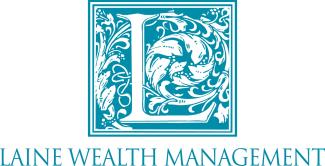
An Estate Planning Guide for Beginners
Estate planning is a comprehensive process that involves organizing your assets and making informed decisions concerning how your wealth will be handled before and after death. It is a critical phase of wealth management, essential for anyone seeking to manage their assets and efficiently pass them to heirs. In this article, we examine the crucial components of an estate plan, how to begin, who can help you develop an estate plan, mistakes to avoid, and how to mitigate them.
The components of an estate plan
Generally, the underlying components of estate planning are wills, trusts, and powers of attorney documents:
Wills
A will is the cornerstone of any estate plan. It allows you to clearly express your wishes concerning the distribution of your wealth and assets. In your will, you can appoint executors to carry out specific instructions regarding your assets, designate guardians for minor children, and establish arrangements for their financial support.
Trusts
Trusts, another core element in estate planning, offer a range of benefits. They can aid in reducing estate taxes, safeguarding your privacy, and ensuring that your assets are managed according to your guidelines. Trusts come in many forms, including revocable and irrevocable trusts, charitable giving trusts, and special needs trusts—each with a unique set of advantages and functions:
- Revocable trust - This type of trust may be altered as often as desired during a grantor's living years.
- Irrevocable trust - This type of trust cannot be altered, amended, or revoked.
- Charitable remainder trust (CRT) - A charitable remainder trust is designed to benefit a non-profit beneficiary. Funding this trust with appreciated assets enables donors to sell the assets without incurring capital gains tax. CRTs are irrevocable and cannot be modified or terminated without the beneficiary's permission.
- Special needs trust - A special needs trust enables a physically or mentally ill person or someone chronically disabled to access funding without impacting their eligibility for public assistance.
There are other types of trusts; your legal professional can help you determine which type is appropriate for your situation and goals of passing assets.
Powers of attorney (POA)
A POA is an important legal instrument that becomes effective when incapacitated and can also be employed for your benefit during travel or absence. Through a power of attorney, you assign another individual—the attorney-in-fact—to act on your behalf in financial or healthcare matters. Depending on the specifics of the document, this designated individual can pay your bills, manage your investments, or make important healthcare decisions for you.
In addition to the elemental components such as wills, trusts, and powers of attorney, estate planning can also encompass life insurance policies, retirement plans, tax planning, health care directives, financial directives, and even funeral preparations. All these elements work together to ensure that your wealth transfers seamlessly, taxes are managed, and your final wishes are respected and carried out as you intend.
How to begin estate planning
Although estate planning may seem complicated, the process becomes much more manageable when broken down into individual components. The more prepared you are, the more straightforward the estate planning process will be. Here are some tips to begin the estate planning process:
Tip #1 - Take an inventory
The first step is inventorying your assets and liabilities, including everything from real estate to bank accounts to digital assets like cryptocurrency. Gathering investment statements, life insurance policies, information on real estate holdings, business information, if applicable, and anything else regarding your wealth is essential.
Tip #2 - Consider beneficiaries
It is crucial to sit down and think carefully about your beneficiaries, whom you want to distribute your assets after your death, and any special provisions you'd like to make for individuals with special needs or for charitable causes.
Tip #3 - Work with professionals
You must include financial, legal, and tax professionals in estate planning. These individuals will consider your assets, wishes, tax consequences, and more so that your estate passes according to your wishes.
Tip #4 - Decide on a Trustee(s)
You will also need to appoint trustworthy individuals to fulfill your wishes as laid out in your estate plan. These could be a trusted friend, a family member, or a professional from a corporate trustee or executor services company.
Who can help with your estate plan?
It would be best to work with professionals specializing in estate planning. These professionals can help you avoid common pitfalls, address complex issues, and devise an estate plan for your needs and objectives. Here are the professionals who are vital in preparing a comprehensive and appropriate estate plan for your situation:
Financial professional
A financial professional can help you prepare your assets for your estate and update beneficiary information per your estate plan. They may also help you determine which assets are for what purpose.
Legal professional
A legal professional is vital to helping you draft your estate plan documents. They will help you consider the appropriate trust type for your situation, if applicable, helping you weigh the pros and cons of each so you can make an informed decision.
Tax professional
Taxes are a significant consideration since taxes may apply to heirs depending on where they live and where the deceased lived. While there may not be federal taxes on the estate, state taxes may apply, or heirs may have a tax consequence. A tax professional can help prepare a plan to pay taxes from the estate, making the inheritance tax-free for heirs.
Mistakes to avoid and how to mitigate them
Estate planning is more than just drafting an estate document; it must consider taxes, heirs, and assets and efficiently execute your legacy. Your plan must incorporate planning for today and the future, regular updating, and attention to detail. While estate planning can be proactive, here are some mistakes to avoid and how to mitigate them so the process goes as smoothly as possible.
Mistake #1 - Failing to have an estate plan
When there is no estate plan, probate, a sometimes lengthy process, can impede the efficient passing of assets. The court system takes over the assets and determines who should inherit what assets.
- How to mitigate mistake #1 - Begin with a simple will, update beneficiaries on your investment accounts and life insurance policies, and name an executor of your estate.
Mistake #2 - Listing only some assets
When you fail to list all your assets in your will or estate plan, disputes among heirs or potential loss may occur. Remember, intellectual property or online accounts such as social media are considered digital personal assets.
- How to mitigate mistake #2 - Keep an updated and comprehensive list of all assets and online accounts. It's a good idea to review your list yearly. Note that social media accounts can only be closed with a legal directive signed before death and a death certificate. Include your social media directive as part of your estate plan's documents.
Mistake #3 - Not telling anyone you have an estate plan
It's vital to inform heirs that you have an estate plan. When you don’t tell anyone, your assets will go through probate or risk the possibility that court fees will be charged to your estate from disputes between heirs.
- How to mitigate mistake #3 - Transparency lets you share your wishes and the reasons for your decisions. If you decide to keep the details of your plan private, ensure that you inform heirs where to locate the plan once deceased so they can proceed with executing your estate.
Mistake #4 - Ignoring your legacy
While estate planning may appear to only focus on distributing wealth, that isn’t always the case. Estate planning can also be about donating to charity and leaving a legacy to improve the world.
- How to mitigate mistake #4 - Work with financial and legal professionals to help identify charities you want to support and determine which assets you would like to donate. You can also use strategies such as donor-advised funds or form a foundation to help ensure your legacy is carried out today and after your death.
In conclusion, estate planning is an integral part of financial planning. It allows you to control your wealth during your lifetime, ensure it is transferred to your heirs as you wish, and mitigate the potential stress on them after your passing. You can effectively identify these goals by understanding the different components of estate planning, how to start, and which professionals can help you work toward an estate plan.
Sources:
https://www.investopedia.com/articles/pf/08/trust-basics.asp
https://trustandwill.com/learn/what-happens-to-your-social-media-when-you-die
Important Disclosures
Content in this material is for educational and general information only and not intended to provide specific advice or recommendations for any individual.
This information is not intended to be a substitute for specific individualized tax or legal advice. We suggest that you discuss your specific situation with a qualified tax or legal advisor.
All information is believed to be from reliable sources; however, LPL Financial makes no representation as to its completeness or accuracy.
LPL Financial Representatives offer access to Trust Services through The Private Trust Company N.A., an affiliate of LPL Financial.
This article was prepared by Fresh Finance.
LPL Tracking #544400

